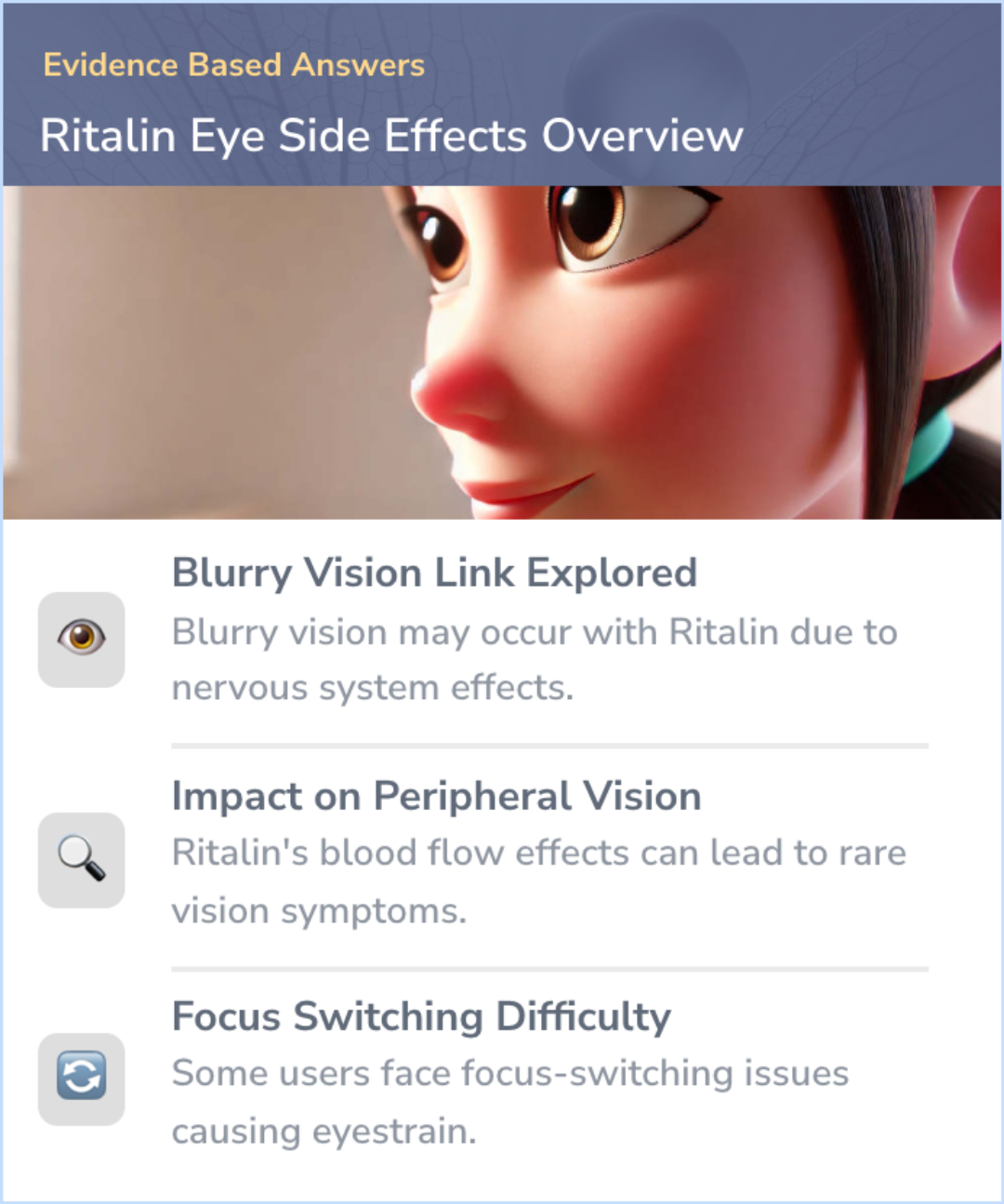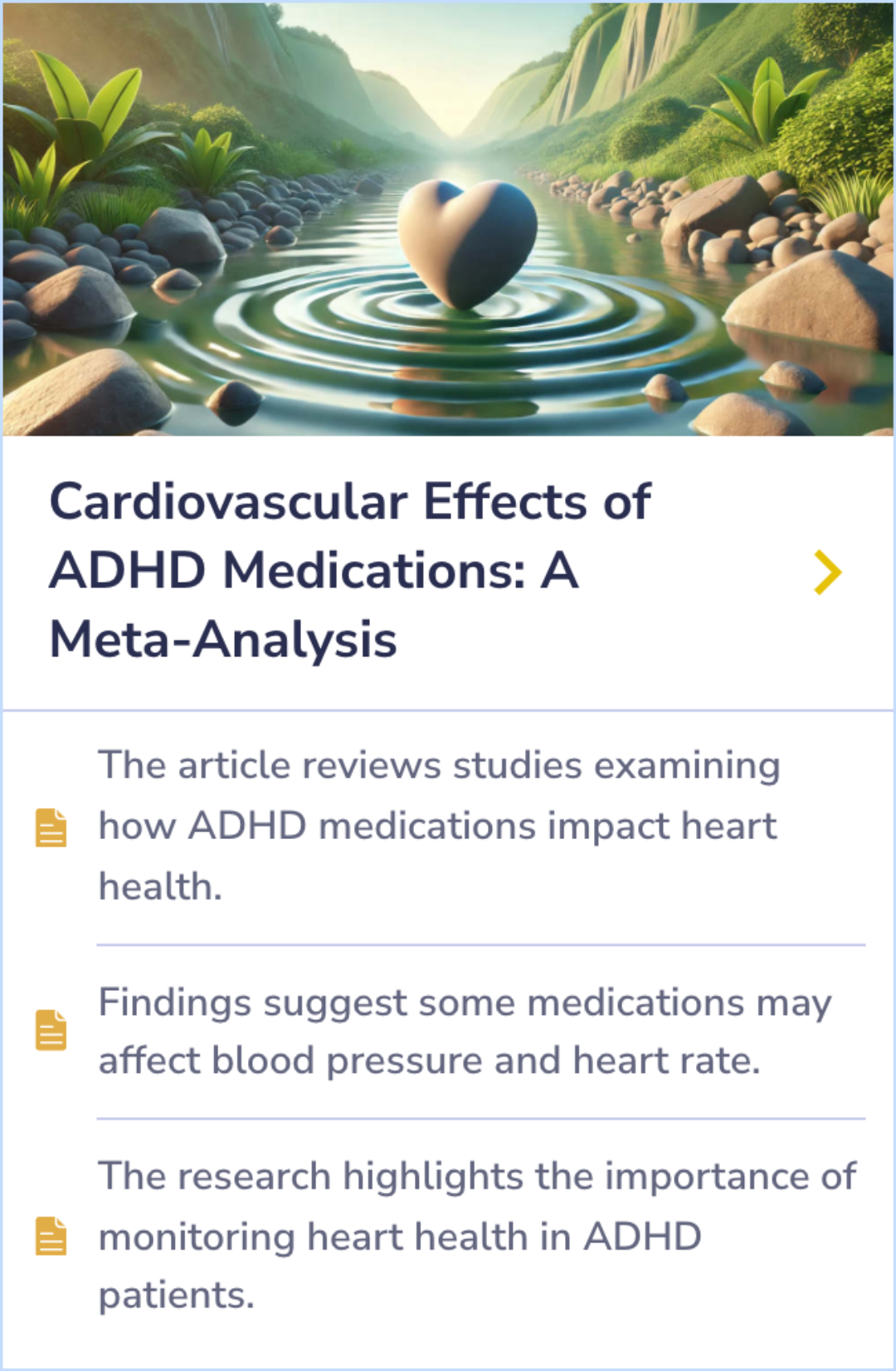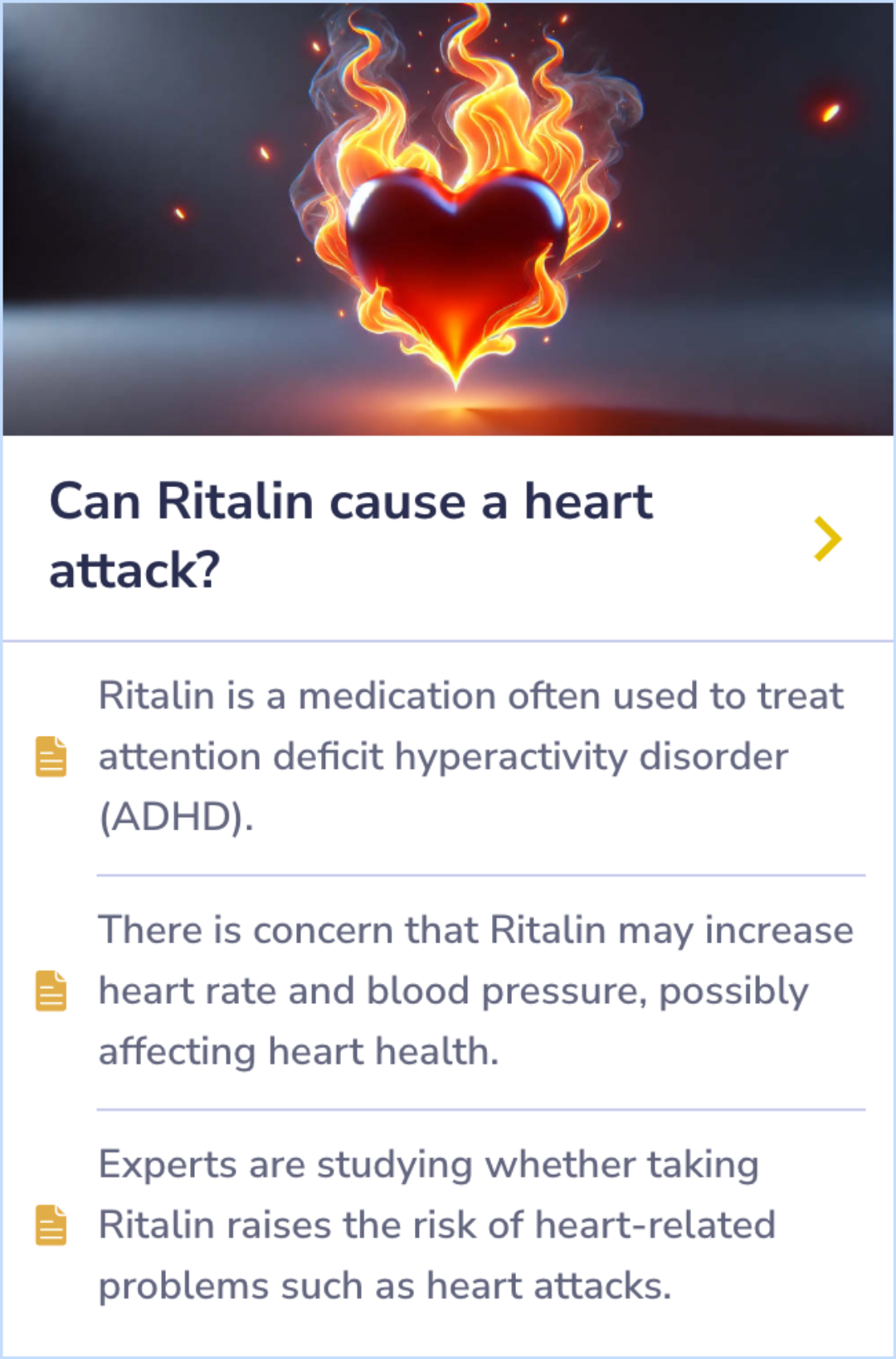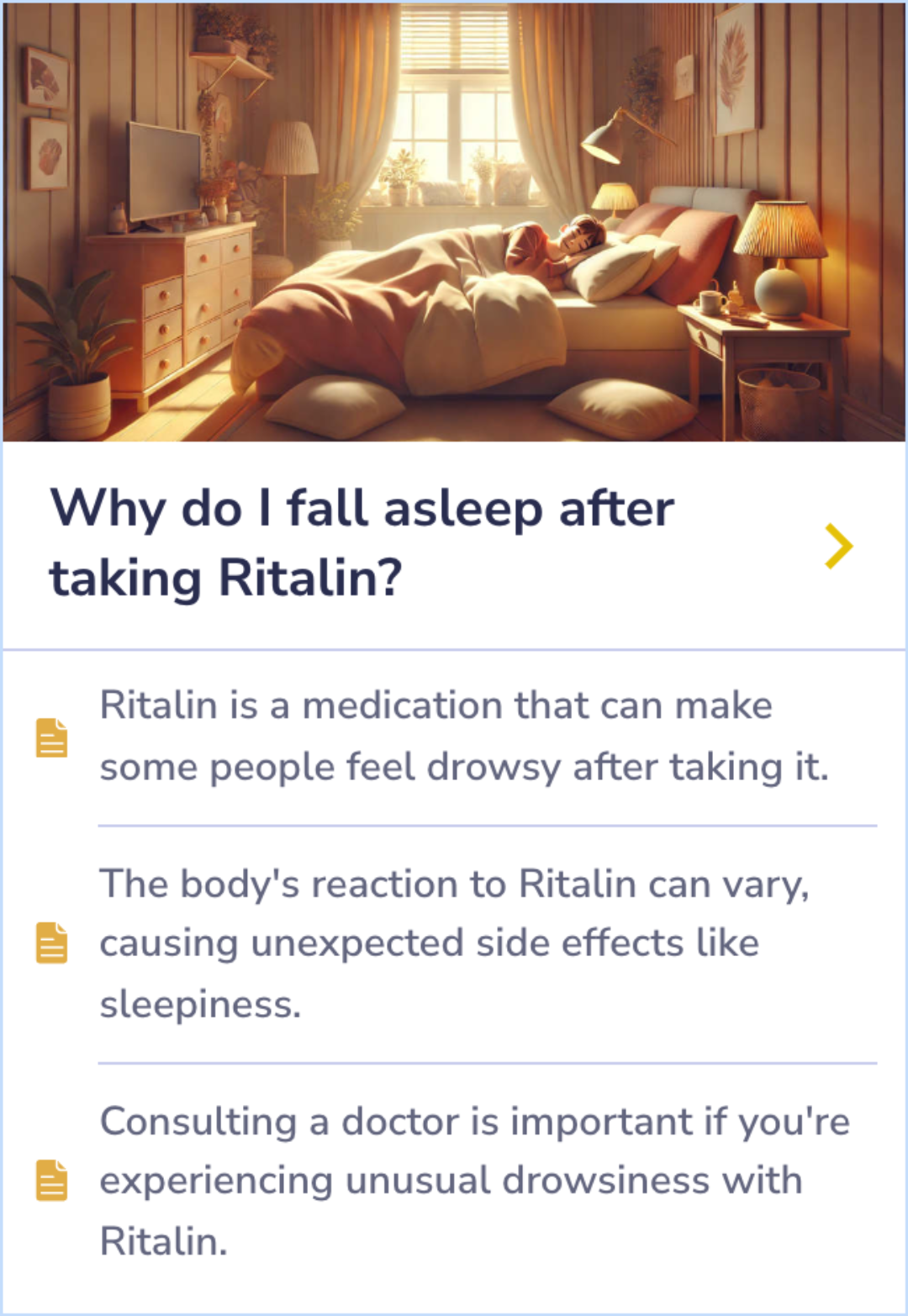Ritalin
Evidence Based Answers
Is Ritalin bad for your eyes?
Ritalin, used to treat ADHD, can lead to potential vision issues such as blurry vision due to nervous system interactions, rare peripheral vision symptoms affecting blood flow, and challenges in eye focus shifting, often causing eyestrain.
Click to explore a section:

Ritalin can cause blurry and focus-shifting vision issues, often linked to nervous system effects.
Balancing Vision Side Effects and Ritalin Use
Ritalin can help manage ADHD symptoms, but it may cause side effects like blurry vision or difficulty with eye accommodation in some individuals. These effects are not common, and most people do not experience them.
Any vision changes should be discussed with a healthcare provider to ensure appropriate adjustments to treatment.
Any vision changes should be discussed with a healthcare provider to ensure appropriate adjustments to treatment.
“
Source Quotes:
Some patients may even develop blurry vision or decreased libido.
Difficulties with accommodation and blurring of vision have been reported with stimulant treatment.
Blurry Vision and Ritalin
Blurry vision is an uncommon side effect of Ritalin (methylphenidate). Some users may have difficulty focusing their eyesight, which can affect activities like reading or using screens.
The exact cause of this effect is not fully understood but may involve interactions with the nervous system.
The exact cause of this effect is not fully understood but may involve interactions with the nervous system.
“
Source Quotes:
Some patients may even develop blurry vision or decreased libido.
Difficulties with accommodation and blurring of vision have been reported with stimulant treatment.
Challenges with Eye Accommodation and Ritalin
Ritalin can sometimes lead to difficulties with eye accommodation, which affects the ability to switch focus between near and distant objects.
This may result in symptoms such as eyestrain or headaches, making tasks like reading or changing focus challenging.
This may result in symptoms such as eyestrain or headaches, making tasks like reading or changing focus challenging.
“
Source Quotes:
Difficulties with accommodation and blurring of vision have been reported with stimulant treatment.
Key Takeaways
Conclusions
Blurry vision is an uncommon side effect of Ritalin, potentially due to its interaction with the nervous system, affecting tasks needing clear focus like reading.
Ritalin may cause peripheral vasculopathy, leading to rare but usually mild vision-related symptoms. Facility to switch focus quickly may be temporarily hampered.
While Ritalin effectively manages ADHD, monitoring for vision side effects is essential to ensure the benefits outweigh any visual discomfort.
Ritalin may cause peripheral vasculopathy, leading to rare but usually mild vision-related symptoms. Facility to switch focus quickly may be temporarily hampered.
While Ritalin effectively manages ADHD, monitoring for vision side effects is essential to ensure the benefits outweigh any visual discomfort.

Evidence Summary
How ADHD Medications Affect Heart Health
ADHD medications can impact heart health, with research showing changes in blood pressure and heart rate in some cases. These medications may elevate or lower these measures, depending on factors like dosage and individual response.
Research emphasizes the need for regular cardiovascular monitoring in ADHD patients, as these adjustments can help manage any potential risks tied to medication use.
Research emphasizes the need for regular cardiovascular monitoring in ADHD patients, as these adjustments can help manage any potential risks tied to medication use.
Evidence Summary
Ritalin and Potential Heart Risks
Ritalin, commonly prescribed for ADHD, may affect heart rate and blood pressure, raising concerns about its impact on heart health. Research is ongoing to explore whether these changes could increase the risk of heart-related issues like heart attacks. Studies continue to investigate these possible connections and the broader effects of Ritalin on cardiovascular health.
Experts are closely examining how Ritalin may influence heart function, considering its effects on circulation and the heart's workload.
Experts are closely examining how Ritalin may influence heart function, considering its effects on circulation and the heart's workload.
Evidence Summary
Unexpected Drowsiness with Ritalin Use
Ritalin, commonly used for treating attention issues, can sometimes lead to unexpected drowsiness, with effects that differ from one person to another. This reaction may come as a surprise since the medication is known for its stimulating effects.
Individuals experiencing drowsiness while on Ritalin should discuss these side effects with their healthcare provider to explore options for reducing or managing this response.
Individuals experiencing drowsiness while on Ritalin should discuss these side effects with their healthcare provider to explore options for reducing or managing this response.


